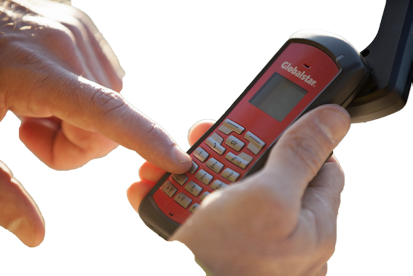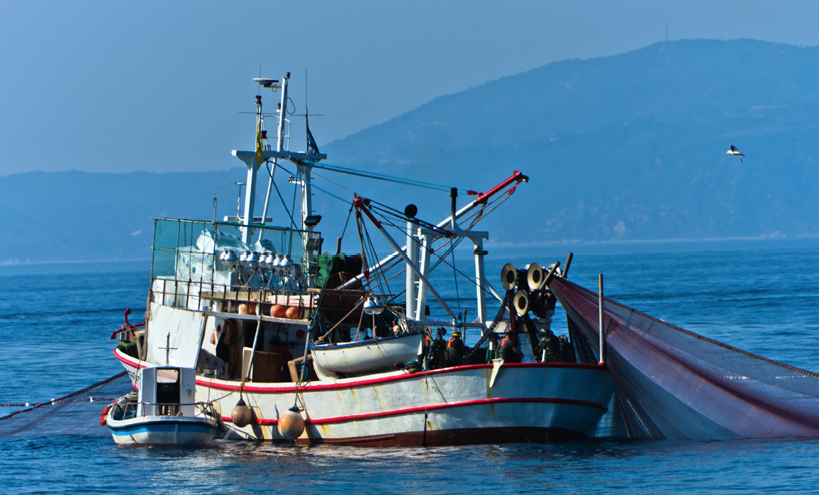Commercial fishermen the world over face increasing pressures as they strive to make ends meet—whether it’s a family business owner with just a few boats dedicated to harvesting sardines off the coast of Spain, or a fleet that measures worldwide catches of tuna in the millions of tonnes, today’s competitive marketplace makes what’s already a tough job even tougher.

Prices of many fish stocks have become unstable and/or have fallen. At the same time, competition has increased. Challenged by fluctuating availability and pricing, some fishing businesses are diversifying, searching to safeguard revenues by fishing new kinds of stock in new regions, and traveling further and further away from home to accomplish this task.
In order to thrive, or even just survive in the commercial fishing business today, vessels of all sizes increasingly need to think of themselves as mobile offices on water, running businesses to the uncompromising rules of demand and supply. Crews need to stay in close touch with their bosses and colleagues who provide support to the fleet from land. And fishermen need to liaise with all other players in the supply chain. However, most importantly, fishing crews today need to stay in close contact with their customers, even while trawling the high seas.
Spain-based Equipos Navales Industriales S.A. provides communications systems to the maritime sector, among other industry groups. The firm’s Sales Manager for Satellite Communications, Guillermo Salas, explains that his commercial fishing customers are increasingly relying on satellite telephony to do this.
“Many fishing fleet owners are also fish dealers,” Salas explained. “They need to know the size and quality of any catch and be able to communicate with buyers rapidly in order to help them to establish informed prices as they take the fish to market.
The faster that buyers and sellers can obtain a clear understanding of what’s being caught, where, and in what quantities, the more speedily they can make pricing decisions, negotiate deals and, therefore, the greater the chance they leverage a competitive advantage over their competitors.
Salas explained that even when on the move, fish sellers are eager to exchange data with buyers in real time—many regard person-to-person voice calls as the most efficient manner whereby to relay this information. With just a phone call, questions are asked and answered, and agreements struck, voice-to-voice, immediately.
To this end, seafarers in commercial fishing are demanding clear and reliable voice communications, enabling them to speak directly with fish buyers even when far out at sea. They have come to rely on satellite telephones, the only viable solution for making and receiving phone calls wherever they are, miles outside of GSM range.
Salas’ customers tell him how much they value clear voice calls and low prices for their communications during their fishing operations at sea. For example one Spanish fisherman said, “We must always keep a close eye on all our vessel costs and if we can make satellite calls economically, we prefer it for everyday calls. We use the Globalstar phone on a daily basis.”
Salas points out that the fishing vessel crews most appreciate the ability to speak and hear clearly on phone calls while at sea. They don’t want to be annoyed by latency in the call or any interruptions due to a loss of signal.
Fishermen also use their satellite phones to send electronic logs to local authorities, which is a regulatory requirement, as well as for downloading navigation and weather charts and forecasts. They also serve as SOS devices should fishing crews encounter trouble when outside of GSM range, reported Salas.

Personal use of satphones by fishing crews traveling the seas is on the rise, as well. The farther away a crew is from home, the more they are keen to hear the voices of loved ones. Offering crew the chance to speak to family and friends is seen as a matter of staff welfare. Low call charges also help the skipper to offer this gesture free of charge to a hard-working team.
“Christmas time sees a big spike in call traffic, and often, the crew do not have to pay which they really appreciate. The satphone is used even more when a vessel is very far from home port,” Salas shared, citing Spanish fleets fishing off the coast of Ireland as one example.
Good and frequent communications with customers is a basic requirement for any successful business, including fishing. This is not just because crews need to discuss pricing and other commercial terms as the catches are evaluated for marketability. Productive person-to-person communications help build relationships and loyalty that are especially important in a tough competitive environment.
A crewman who is able to catch up with family when far from home is also far more productive and much happier. A satphone is, indeed, a commercial fisherman’s true friend.

Based in Globalstar’s European HQ in Dublin, Gavan is responsible for the development and implementation of Globalstar’s marketing strategy across the European, Middle Eastern and African regions. He spearheads the marketing of Globalstar’s consumer products, including the SPOT tracking solutions portfolio, as well as the B2B marketing of voice and data solutions for a range of vertical sectors including maritime, energy, safety and security, commercial fishing and shipping, construction and heavy industry as well as the burgeoning M2M sector. Prior to joining Globalstar in 2008, Gavan worked with leading global mobile provider Vodafone as Channel Development and Category Manager.




